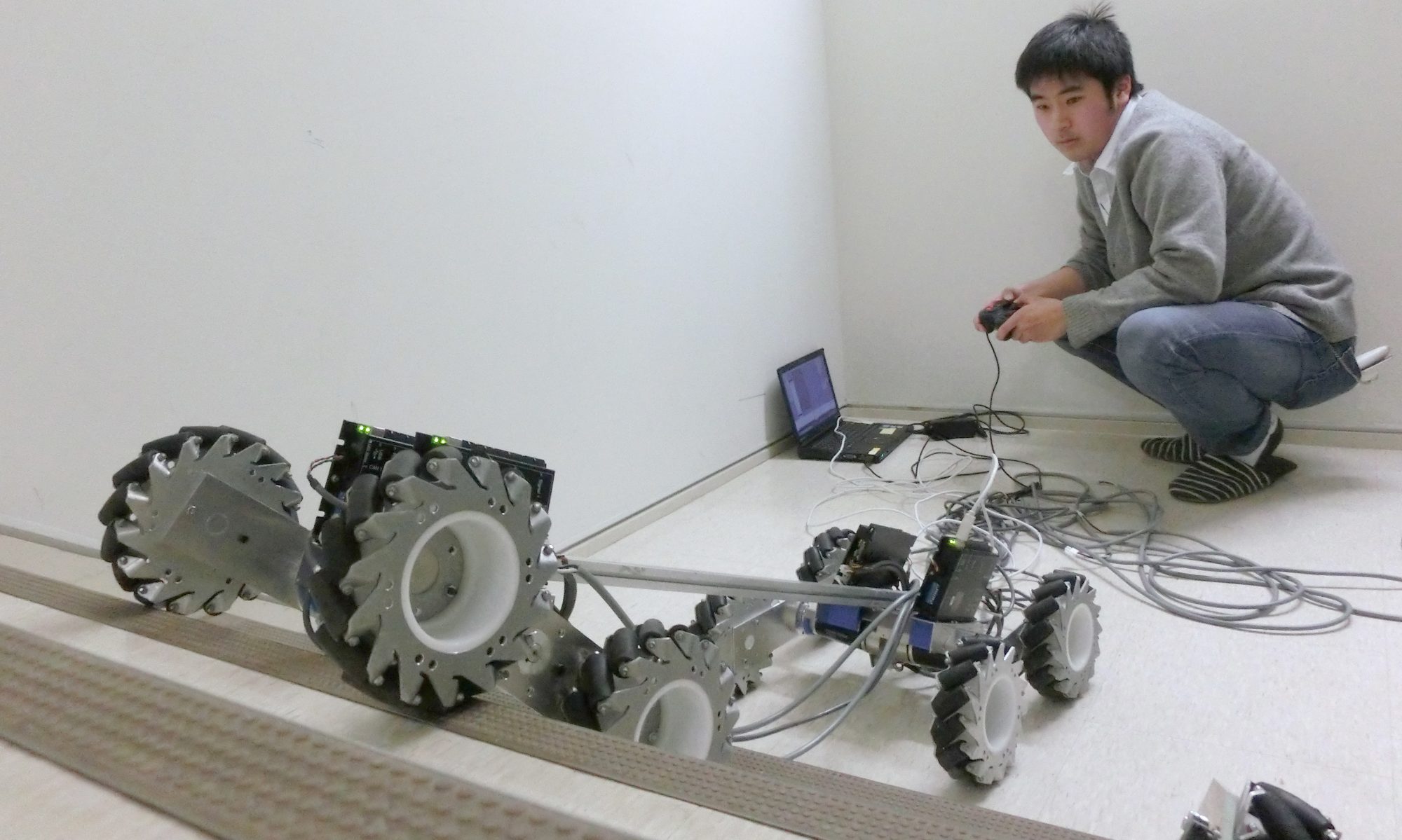News
- Apr. 6, 2017: We open this site.

Faculty of Advanced Engineering, Chiba Institute of Technology
With rapidly evolving scientific technology in the background, robotic industry attracts more attention and expectations for its promising future. As technology gets more sophisticated, developing robots in wider range of industrial fields is expected to gain further momentum, closely associating with not only conventional engineering fields but also designing, arts and psychology Addressing such needs of the age, Chiba Institute of Technology is among the first who tackled the development of state-of-the-art robots by opening the Future Robotics Technology Center (fuRo) in 2003. In April 2006, CIT started the Department of Advanced Robotics to take advantage of fuRo’s achievements for college education. Through studying fundamental principles of robotics, CIT intends to foster engineers with practical expertise who will be frontiers in new spheres of robotics in the future.
To nourish creativity and breadth of vision that engineers must have in the age to come, the Department of Advanced Robotics provides students with practical training curriculum on the basis of comprehensive fundamental education. Through designing and developing robots, students are expected to acquire expertise and technical skills. They are also expected to cultivate mind-set and creativity to work in a project under the real-world restrictions. In other words, CIT aims to foster persistent engineers who can compete against the world with a wide spectrum of expertise and vision.Although robot science is a relatively new field with only 30 years of history, it is an interdisciplinary area where various scientific and academic fields are fused together. With the faculty consisting of prominent professors who are active in the front lines, the Department of Advanced Robotics at Chiba Institute of Technology offers every thing you need to make yourself a robotic engineer of international-standard. CIT intends to provide with qualified students every help and opportunity, fostering next-generation world-class robotic engineers.
3rd, 18th, and 19th floors of Bldg. 2 in Tsudanuma campus, Chiba Institute of Technology
2-17-1 Tsudanuma, Narashino, Chiba 275-0016